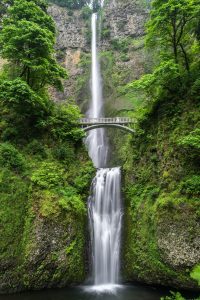Nature is known to have multiple facets that provide optimal physical and mental health. A study in 2021 found evidence linking nature exposure to improved cognitive function, brain activity, blood pressure, mental health, and sleep (Jimenez et al., 2021). This driving force is the biophilia hypothesis, a notion that individuals are predisposed to connecting with nature. However, even though many individuals are drawn to nature, there often needs to be more consistent exposure despite the in-the-moment benefits, such as the positive effects on mental health.
Mainly challenging to stay consistent, teaching skills in nature to individuals suffering from trauma can help foster resilience when those individuals choose to get outside. A study in 2022 stated that Post Traumatic Stress Disorder (PTSD) symptoms in 59.2 million people who experienced sexual assault occurred (Basile et al., 2022). Symptoms included, but not limited to, are anxiety, depression, fear, and insomnia. Sexual assault survivors lose a sense of empowerment while experiencing these symptoms. This difficulty equates to losing autonomy, requiring resilience to regain power. But what strategies can survivors implement when out in the woods?
Trauma-informed principles offer the opportunity to reflect on the symptoms of trauma and how to cope effectively
Trauma-informed principles offer the opportunity to reflect on the symptoms of trauma and how to cope effectively. Levenson (2020) stated that understanding client problems, coping strategies, and strengths allows practitioners to respond with trauma-informed principles to foster resilience and create opportunities for healing. For example, if we choose the principle of ’empowerment,’ survivors who enjoy hiking can reflect on when they felt like they lost a sense of power and how they overcame it, on and off the trail. Understanding resilience in various challenging situations allows survivors to see coping methods that empower individuals to regain control despite the situation they might face. Ultimately, this can reduce anxiety, depression, and fear.
Photo by Blake Verdoorn on Unsplash
The above method is not a one-size-fits-all solution. However, other alternatives for survivors that might be effective include forest bathing. Forest Bathing involves relaxing in the woods, observing the surroundings, and sensory engagement. The intervention is known to reduce stress and anxiety levels. Survivors who experience ruminations from their traumas can benefit from this practice without focusing on the details of the trauma. Another study in 2019 (Moore et al.) showed reduced negative thinking and rumination in sexual survivors in nature, with increased attention to the here and now. An intervention that requires minimal details about the trauma(s) can be just as effective as others that require more involvement.
Sexual assault survivors can benefit from nature, but so can individuals who experience other mental health challenges, such as dissociation, behavioral disorders, learning disorders, and depression. The majority of mental health challenges consist of symptoms found in various disorders that many individuals face today, providing opportunities for improvement in healing. Individuals sometimes lack awareness regarding symptoms and how they can be universally known. However, it is not to say that traditional therapy methods are ineffective. Consulting with a provider or specialist helps understand the best treatment options and empowers the survivor or individual struggling to embody self-determination. This first step towards empowerment allows the individual to recover quickly.
Interventions in nature for sexual assault survivors are endless, depending on the needs of the individual. The main goal is to experience the physical and mental health benefits while healing. No pun intended, but two birds and one stone allow survivors to care for their overall health while practicing resilience. Nature allows individuals an alternative way to heal when traditional methods have been less effective or appealing. Implementing resilience allows others to bounce back from the current and future challenging events an individual who has PTSD may experience.
Photo by Tim Swaan on Unsplash
Guest Post Disclaimer: Any and all information shared in this guest blog post is intended for educational and informational purposes only. Nothing in this blog post, nor any content on CPTSDfoundation.org, is a supplement for or supersedes the relationship and direction of your medical or mental health providers. Thoughts, ideas, or opinions expressed by the writer of this guest blog post do not necessarily reflect those of CPTSD Foundation. For more information, see our Privacy Policy and Full Disclaimer.

Deborah E. Padilla, LMSW, PhD(c) is a licensed social worker specializing in nature and adventure therapy, focusing on trauma. She is a Ph.D. Candidate in Social Work, the founder of PATHS WITH HEALING Inc., the podcast HIKING IS MY THERAPY, and a licensed hiking guide. She has extensive experience working with individuals, children, families, and groups in various settings.




